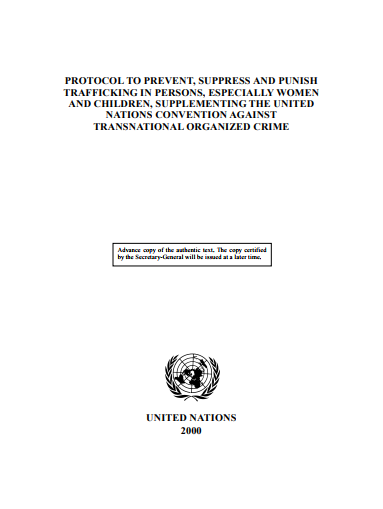The Protocol to Prevent, Suppress and Punish Trafficking in Persons, especially Women and Children (also referred to as the Trafficking Protocol or UN TIP Protocol) is a protocol to the Convention against Transnational Organised Crime. It is one of the three Palermo protocols, the others being the Protocol against the Smuggling of Migrants by Land, Sea and Air and the Protocol against the Illicit Manufacturing and Trafficking in Firearms.
The protocol was adopted by the United Nations General Assembly in 2000 and entered into force on 25 December 2003. As of September 2017 it has been ratified by 171 parties. Please see the ratification status here.
The United Nations Office on Drugs and Crime (UNODC) is responsible for implementing the protocol. It offers practical help to states with drafting laws, creating comprehensive national anti-trafficking strategies, and assisting with resources to implement them.
The protocol commits ratifying states to prevent and combat trafficking in persons, protecting and assisting victims of trafficking and promoting cooperation among states in order to meet those objectives.

